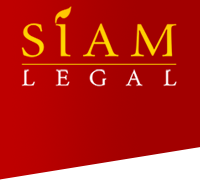Victims of Fraud in Thai Criminal Law
A fundamental issue that arises in Thai criminal law is whether a certain person directly affected by a crime may be considered a victim of that crime. This issue is particularly important because in Thailand, as in other countries that follow the European Continental Law tradition, victims are allowed to join the prosecution as a joint-plaintiff in criminal proceedings. This issue arose in Thai Supreme Court Decision No. 6969/2555 which involved the crime of fraud. According to Section 341 of the Criminal Code, fraud is defined as follows:
- “Whoever, dishonestly deceives a person with the assertion of a falsehood or the concealment of the facts which should be revealed, and, by such deception, obtains property from the person so deceived or a third person, or causes the person so deceived or a third person to execute, revoke or destroy a document of right, is said to commit the offence of cheating and fraud…”
Therefore, Section 341 does envision that a third person or someone who is not the direct target of fraud may nevertheless be a victim of the crime. Furthermore, although the Thai Criminal Procedure Code does not exactly use the term “victim”, Section 2(4) of that Code defines an “injured party” as “a person who receives injury due to the commission of an offense…” Therefore, Section 2(4) does not necessarily limit the scope of an injured person to those directly targeted by a crime. Nevertheless, in the above-mentioned decision, the Thai Supreme Court limits the definition of an “injured party” to only those that are directly targeted by an offense, despite the fact that they were directly affected by it.
- The facts were that the Defendant had defrauded Victim #1 by representing that the Defendant had a relative who wanted to sell a plot of land. Based on the fraud, Victim #1 personally paid about 390,000 baht to Defendant. Victim #2, after hearing of the investment opportunity from Victim #1, also transferred about 330,000 baht to Victim #1 for Victim #1 to pay to Defendant.
- During criminal proceedings against Defendant, both victims filed a petition to join the Public Prosecutor as joint plaintiffs. The trial court granted the petition and found Defendant guilty and ordered that the Defendant return the respective amounts of money to both victims.
- On appeal, the Thai Supreme Court denied Victim #2’s petition to join the proceedings as a plaintiff. The Court made the ruling on the grounds that Defendant committed the fraud in the form of words spoken to only Victim #1 and only received property from Victim #1. Therefore, Defendant only had the intention to defraud Victim #1. The Court affirmed the ruling of the Court of Appeals that Victim #2 was not an injured party.
Thai criminal procedure is complex. Victims of crimes in Thailand are advised to consult competent Thai lawyers to understand your rights under the law.
Category: Criminal Law, Litigation
About the Author (Author Profile)
Siam Legal is an international law firm with experienced lawyers, attorneys, and solicitors both in Thailand law and international law. This Thailand law firm offers comprehensive legal services in Thailand to both local and foreign clients for Litigation such as civil & criminal cases, labor disputes, commercial cases, divorce, adoption, extradition, fraud, and drug cases. Other legal expertise of the law firm varied in cases involving corporate law such as company registration & Thailand BOI, family law, property law, and private investigation.











